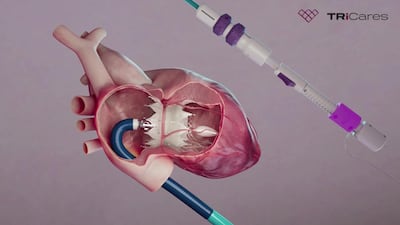St. Jude Medical Inc.’s Riata and Medtronic PLC’s Sprint Fidelis implantable cardioverter defibrillator leads, both subject to major recalls, can be extracted from patients’ hearts as easily as non-recalled leads, a major 10-year retrospective study at the Cleveland Clinic suggests.
Medtronic initiated a class I recall of Sprint Fidelis leads in 2007 after adverse event reports showed they were prone to conductor fracture that may cause inappropriate shocks and loss...
Read the full article – start your free trial today!
Join thousands of industry professionals who rely on Medtech Insight for daily insights
- Start your 7-day free trial
- Explore trusted news, analysis, and insights
- Access comprehensive global coverage
- Enjoy instant access – no credit card required
Already a subscriber?



